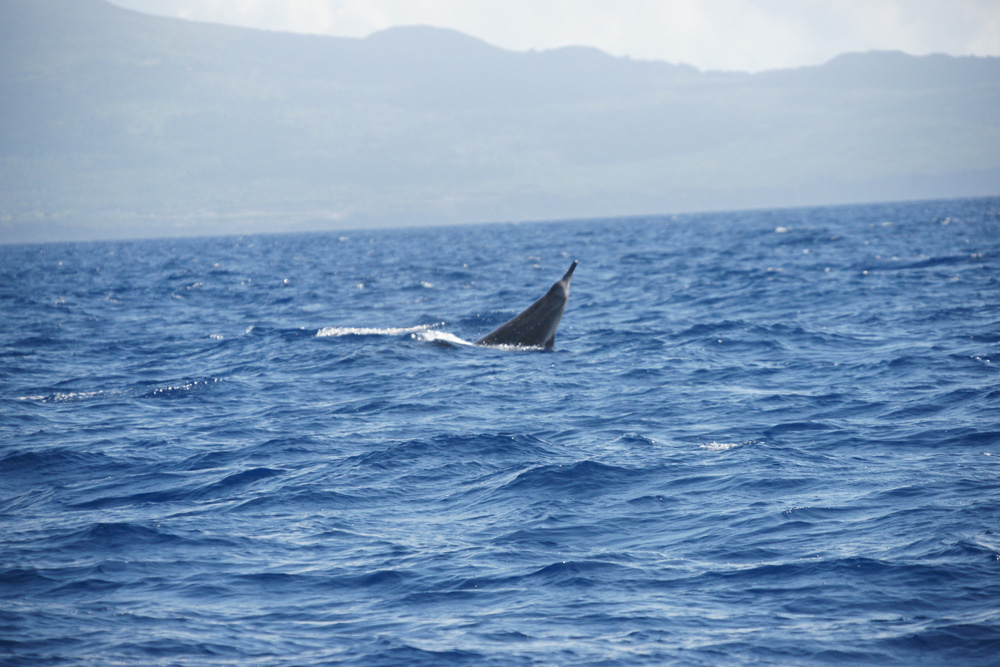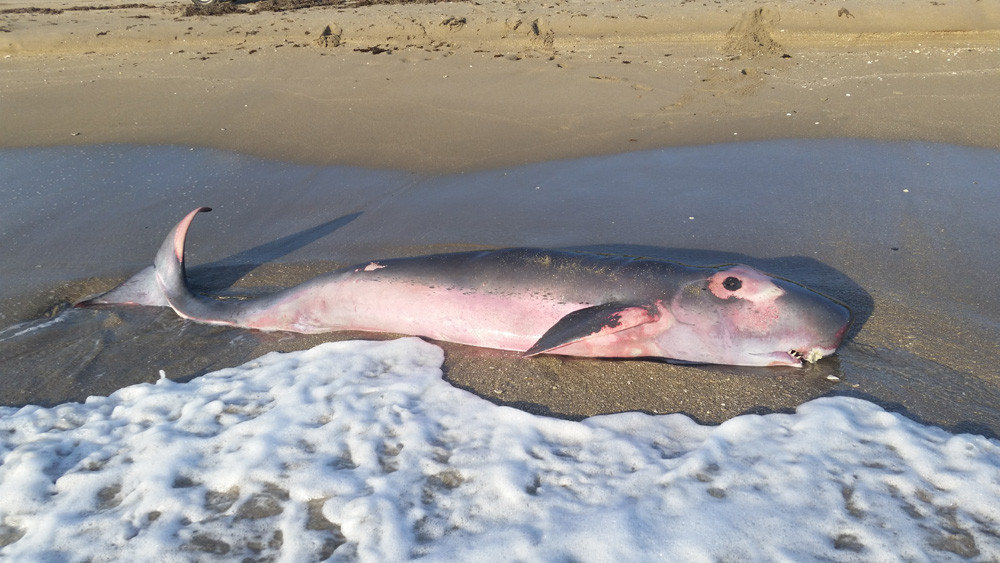EXPERTS are investigating after two different species of rare whale were washed up near the same town on the same day.
Locals found a Sowerby’s beaked whale on Dunnet Beach near Thurso, Caithness, on Thursday morning.
Later the same day the carcass of a bloodied Pygmy sperm whale was discovered on the same beach.
Both whales are due to be examined by experts Scottish Marine Animal Stranding-Scheme this week to determine the cause of death.

But the fact that two rarely-seen species of whale were found dead together has led some locals to ask whether Royal Navy vessels were in the area at the time.
Donald Mitchell said: “Two rarish species at the same time in the same area. Has the MoD been active in the area?”
Cathie MacLeod wrote: “So sad to see these beautiful creatures dead on a beach.”
And Scott Youngson, who discovered the Sowerby, said: “Sad sight on Dunnet Beach this morning. Sowerby’s beaked whale, quite rare I’m told.”
Sowerby’s beaked whales prefer deep waters and mainly spend their time along continental shelf edges so sightings in Hebridean waters are rare and records include stranded animals.
They extend along the east coast of North America and Canada, offshore in open waters, and from northern Africa to the Scandinavian coast.

One of last reported sightings was last year when the carcass of a young Sowerby’s beaked whale was discovered off the Isle of Lewis.
A post mortem revealed the cause of death was blunt force trauma that resulted in a fractured lower jaw and meant the whale being unable to feed.
Pygmy sperm whales inhabit waters as far south as New Zealand, whilst Scottish waters represent its most northerly limit, but sightings in Hebridean waters are extremely rare.
Since formal records began in 1913, there were only eight strandings on the British coast from 1980 to 2006, mostly in southwest England and Wales.
In 1999 an adult female and a calf of unknown sex stranded at Loch Ryan, Stranraer, Dumfries and Galloway and believed to be the first sighting recorded in Scottish waters.
In 2011 the Royal Navy were found to be responsible for the death of 19 pilot whales after setting off underwater bombs.
A report by the Department for Environment Food and Rural Affairs says that the noise from the explosions could have damaged the hearing and navigational abilities of the whales, causing them to beach and die.
Last year the SNP called on the Ministry of Defence to give assurances that no more bombs will be exploded underwater in Scottish seas in a bid to prevent further damage being done to sea creatures.
The Scottish Marine Animal Strandings Scheme confirmed they would be examining the remains but declined to comment until post postmortems had been done.

